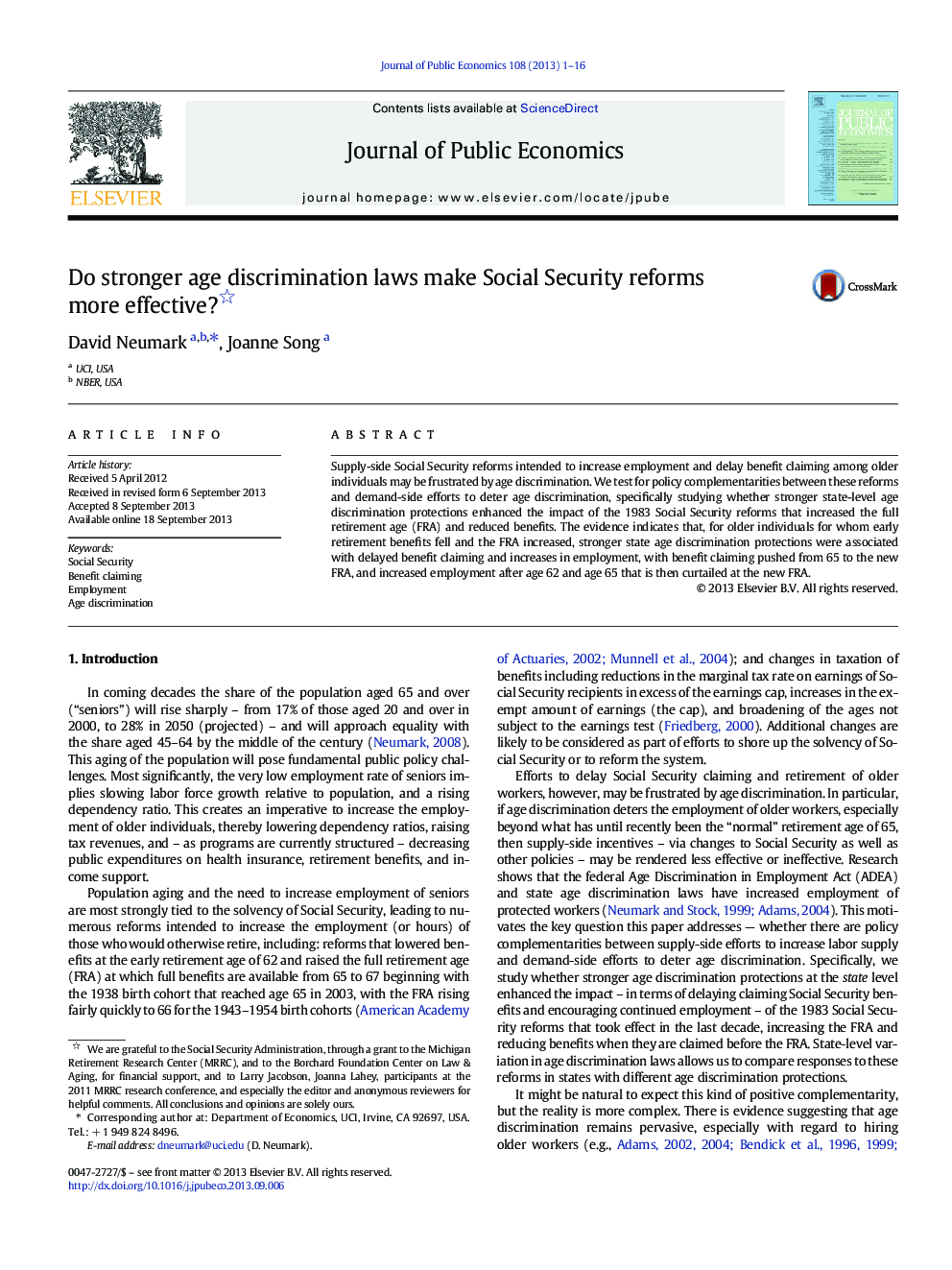| Article ID | Journal | Published Year | Pages | File Type |
|---|---|---|---|---|
| 969693 | Journal of Public Economics | 2013 | 16 Pages |
Supply-side Social Security reforms intended to increase employment and delay benefit claiming among older individuals may be frustrated by age discrimination. We test for policy complementarities between these reforms and demand-side efforts to deter age discrimination, specifically studying whether stronger state-level age discrimination protections enhanced the impact of the 1983 Social Security reforms that increased the full retirement age (FRA) and reduced benefits. The evidence indicates that, for older individuals for whom early retirement benefits fell and the FRA increased, stronger state age discrimination protections were associated with delayed benefit claiming and increases in employment, with benefit claiming pushed from 65 to the new FRA, and increased employment after age 62 and age 65 that is then curtailed at the new FRA.
